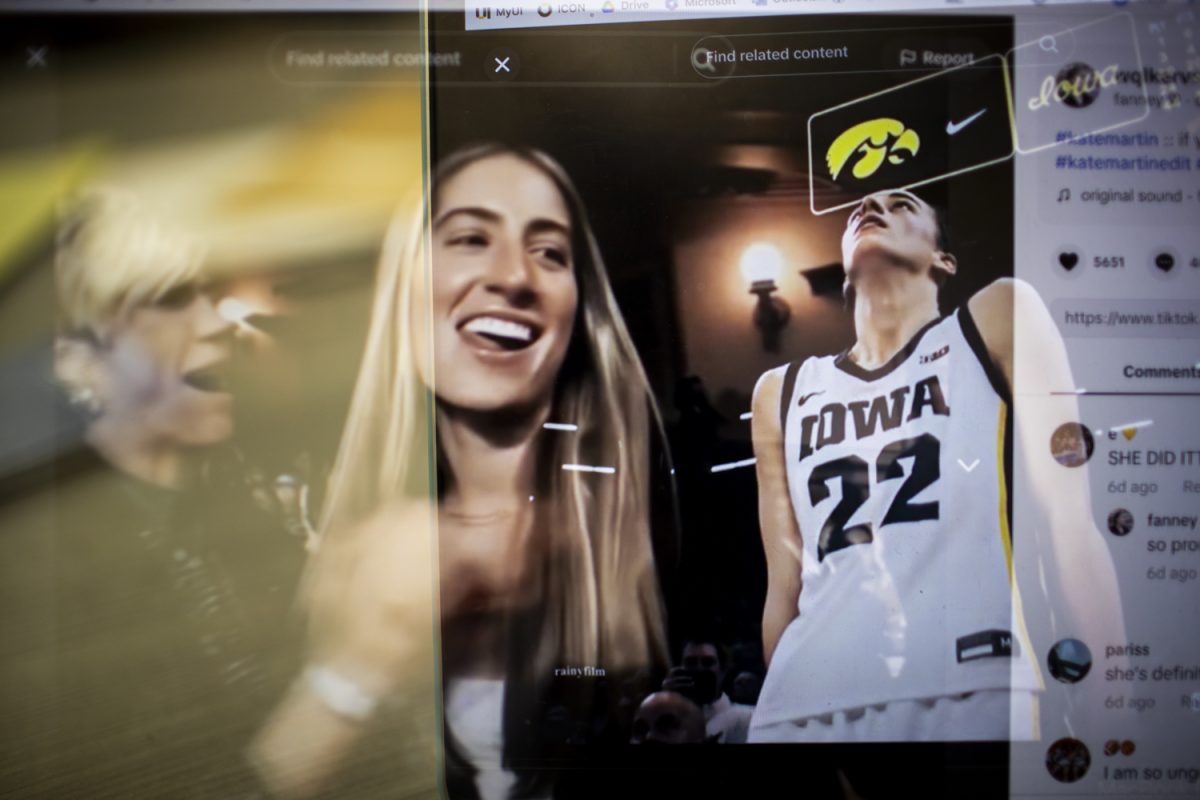One local student-government head is calling upon the U.S. Congress to act diligently before national college-loan interest rates double. The problem? Only 10 days remain.
Beginning July 1, interest rates for a common tool in the American higher-education system, subsidized Stafford Loans, will double from 3.4 percent to 6.8 percent, costing both incoming and current college students more for a college education.
“It’s definitely at the forefront of my concerns,” said University of Iowa Student Government President Katherine Valde, “It’s alarming for students to see the loan rate could double.”
The rate change will only affect new loans that students take out. The interest rates of existing Stafford Loans, ones that can be paid off after a student graduates, are still locked for the life of that loan.
The need-based loans will still not accrue interest during the borrower’s college years, unlike the unsubsidized Stafford Loans, which do.
The table was originally set when Congress passed a law in 2007 that gradually reduced the subsidized loan rate from 6.8 percent to 3.4 percent over a period of four years.
The law, which was extended once in 2012, is going to end on July 1, and the loan rate will snap back to the original 6.8 percent.
Valde, along with 11 other student-body presidents, signed a letter to the editor, sent to many Iowa newspapers and to Iowa’s Congressional delegation, urging Congress to prevent the rate hike from taking place. She said the UISG senators have been urged to push their representatives to act.
Mark Warner, the UI assistant provost for Student Financial Aid, told the DI in an email that the current actions by UISG are “prudent and necessary.”
He said students, especially those who need to pay back their loans over an extended period of time, will end up paying more with the anticipated rise in interest rates.
Citing all-time high student debt, coupled with a still-challenged economy, he said students should make prudent financial decisions and only borrow amounts that are absolutely necessary.
But one local economist says the rise in interest rates has a silver lining.
UI economics lecturer Patrick Barron said people will borrow less money after a rate hike, and that “will have a moderating effect on the ability of colleges to increase their tuitions, which is a good thing.”
“Colleges have been able to increase their tuitions because they have been indirectly getting government money from the college loans … [which they] have become accustomed to,” he said. “Colleges are going to have to be doing some serious cost-cutting.”
Freshmen, who are just starting to borrow money for college, will be among the most affected at the university.
“I think [the higher student loan rates] will give me more determination to make me work harder,” said incoming UI freshman Nina Glover.
Her mother, Yulanda Glover, accompanying her daughter at freshman Orientation, said she expects her daughter’s education to require borrowing approximately $25,000.
“It’s definitely going to affect her take-home when she goes into repayment,” said Yulanda Glover. “[UISG] should lobby and make sure government truly understands the financial impact.”
UI junior John Sagar, a nursing student with about $12,000 in student loans, called the expected changes ridiculous. He said expects to accumulate another $5,000 in debt before he graduates.
“While we’re paying for education, the banks that got bailed out are paying absolutely the lowest interest rate possible for something that has done nothing but harm America, while education is something that we should be spending money on.”
But for one incoming freshman, student loans won’t be apart of the collegiate equation.
Chris Funaro and his family have opted out of using student loans.
“We took advantage of the 529 plan and saved long and hard,” his mother, Gretchen Funaro, said.






